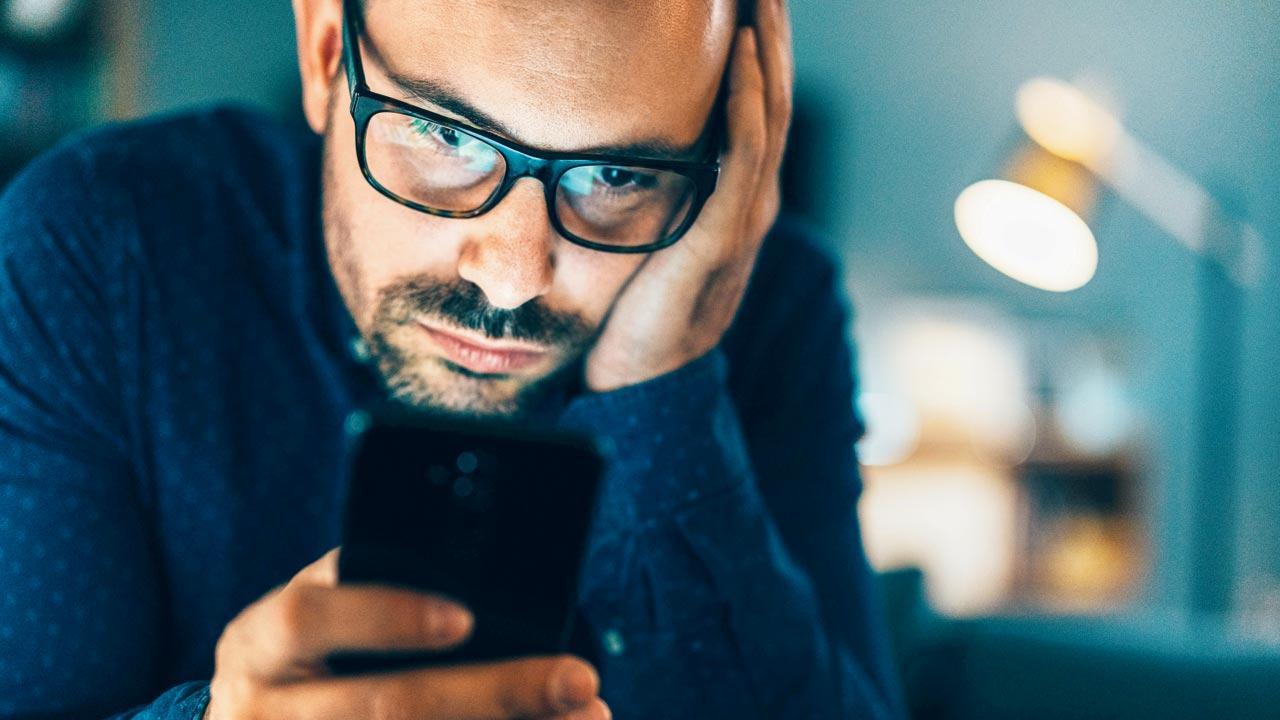Stretched Work From Home hours and the anxiety over isolation, catching infection, and depleting earnings is making slow texters out of those who were once prompt at communication

You don’t need an excuse to not reply to someone, the pandemic is reason enough
As a super fast texter/WhatsApper, this writer has often faced imagined rejection from “slow texters”—the ones who reply four days later, with a “Sorry, I missed this”, or a completely nonchalant “Hey, how are you?” But, like it or not, the cult of slow texters has gained more followers, especially after the ghastly
year we have been through, which is repeating itself like the days in Groundhog Day.
ADVERTISEMENT
But, slow texting, which according to Urban Dictionary, is a practice that involves deliberately waiting an unnecessary amount of time (anywhere from over six hours to days) before responding to a text message, is the way the world seems to be working these days. The pressures of being available for work every single day (as WFH lines get blurred), being around for friends who are venting/facing anxiety, or just playing catch up with a potential date, has resulted in many of us resorting to slow texting to keep ourselves sane.
Khushi Shah and Simon Fernandes
Anastasia Dedhia, climical psychologist and founder of Mind Mantra, says, “Recently, I had two clients tell me that they have wanted to cut off from most of their friends. What we are seeing in the pandemic is that either people have chosen to evolve or regress. So, some have decided that they will focus on their personal and/or professional growth, which leaves them with no time or inclination to communicate. Or, they are low and disillusioned, and don’t want to actively engage.”
If before the pandemic, we had work to blame for not responding to messages on time, doing the same during WFH, could lead to a barrage of questions like “why aren’t you free?” But there are many who are taking control of their lives again. Marketing professional Jeunelle Rebello says that she responds to clients and colleagues according to her rapport with them and the urgency of the matter at hand, but never responds on weekends. As for friends, she has a pile of messages waiting for her every few days. “To them, I reply as early as 6 am, so that I’m not bombarded with reverts . I used to say, sorry before, but I have stopped doing that as well,” says the 28-year-old. Ask her what is the reason for her slow texting, and she says, “Text fatigue has got out of hand. By the time I reply to people, they forget they have messaged you. I don’t have the mental space to do it. I just can’t. My close friends understand it. I don’t pressure them [to respond to messages], they don’t pressure me.”
Sneha Sangani and Jeunelle Rebello
That’s the core defence for slow texting—you don’t need to have an excuse to not reply. Yet, life and work right now is an excuse enough. Constant beeping of the phone, arrival of messages and mails triggers anxiety, and as Vale Wright, senior director of health care innovation at the American Psychological Association suggests in an article online, one should do all they can to protect their mental health. She recommends turning off notifications, muting threads or excusing yourself from a group chat for a bit, and while, some people’s feelings might get hurt, setting boundaries is crucial. It’s what Baroda-based Sneha Sangani does. The Instagram influencer has constant DMs from followers to deal along with texts and calls from brands that want to collaborate. “I have been anxious lately, and although, I am not usually uninterested in having a conversation at the time the other person wants to have one, right now I don’t have the energy. So, I don’t reply right away. And when I do, I explain that I need time. A brand recently saw my stories where I explained that I have COVID-19, and they messaged saying I could take as much time as I wanted to [off work]. But even my friends, who I often inform about going off WhatsApp, are supportive,” says the 30-year-old.
Simon Fernandes, who works in cyber security, says that he only replies to those messages during the day that are urgent, either due to work deadlines or friends who are facing mental health issues. “But other than that, if it’s just a catch up situation, I avoid [responding] till the end of the day. I need to switch off technology, considering that my work too, involves being connected to gadgets.” Work and friends aside, as marketing strategist, Khushi Shah says, even potential dates need to understand that with what’s happening in the world these days, emotional space is the most important commodity. “I can’t plug out or plug in on demand anymore. I know that I have to build time blocks to finish work, and not get distracted, even if it’s a person I may be dating,” says the 30-year-old. Her reasons, like everyone else’s, hark back to preserving her emotional equilibrium and sanity. “Many a times. friends, who are also facing anxiety, want to rant or vent—I switch off then, and say, sorry, I am not around. I do get back to them eventually after I am done with the work on my hands. Keeping myself healthy and in a good space has become a priority over the last year.”
 Subscribe today by clicking the link and stay updated with the latest news!" Click here!
Subscribe today by clicking the link and stay updated with the latest news!" Click here!






